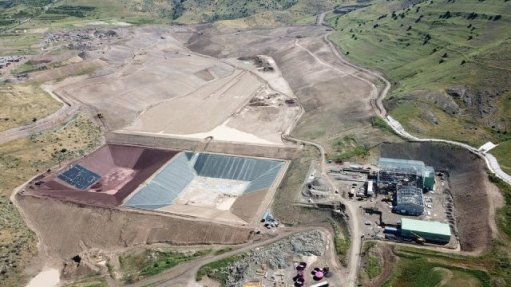
Canada’s Lydian International has updated the feasibility study of its Amulsar project, in Armenia, where demonstrations and road blockades delayed development for about 15 months.
The updated report, which addresses the impact of the blockade on construction and the resulting delay in obtaining first gold, indicates that Lydian had already spent $361.9-million in capital costs on building Amulsar and that it has a budget of $146.3-million left to complete the project.
The new study, the results of which were published on Monday, also works on lower average yearly gold production and higher all-in sustaining costs (AISC), than the 2017 technical report.
Amulsar is now forecast to produce 205 000 oz/y at an AISC of $744/oz, compared with the previously estimated 227 000 oz/y at an AISC of $514/oz.
The AISC reflects actual labour costs and pricing of consumables realised in the pre-production stage, Lydian said in a statement.
The total recoverable gold increased by 192 000 oz to 2.46-million ounces over a 12-year mine life, compared with a ten-year mine life.
A revised mine plan includes a lower 2.04:1 waste to ore stripping ratio and increases ore tonnes.
The net present value, at a 5% discount, reduced from $386-million in 2017 to $363-million in 2019 and the internal rate of return dropped from 24.5% to 14.9%.
Last week, interim CEO Edward Sellers said that the Amulsar project could be producing by late next year, or early 2021. The company is looking at restarting construction by April or May next year, although some rehabilitation and earth-moving associated with site recovery could start earlier.
Work on the project was halted in June last year, when protestors set up illegal blockades preventing access to the mine. Before the demonstrations, Lydian was working towards entering production in the fourth quarter of 2018, ramping up to full output in 2019.
Armenia Prime Minister Nikol Pashinyan said earlier this month that access to the Amulsar project should be restored and that protestors blocking access should open the roads.